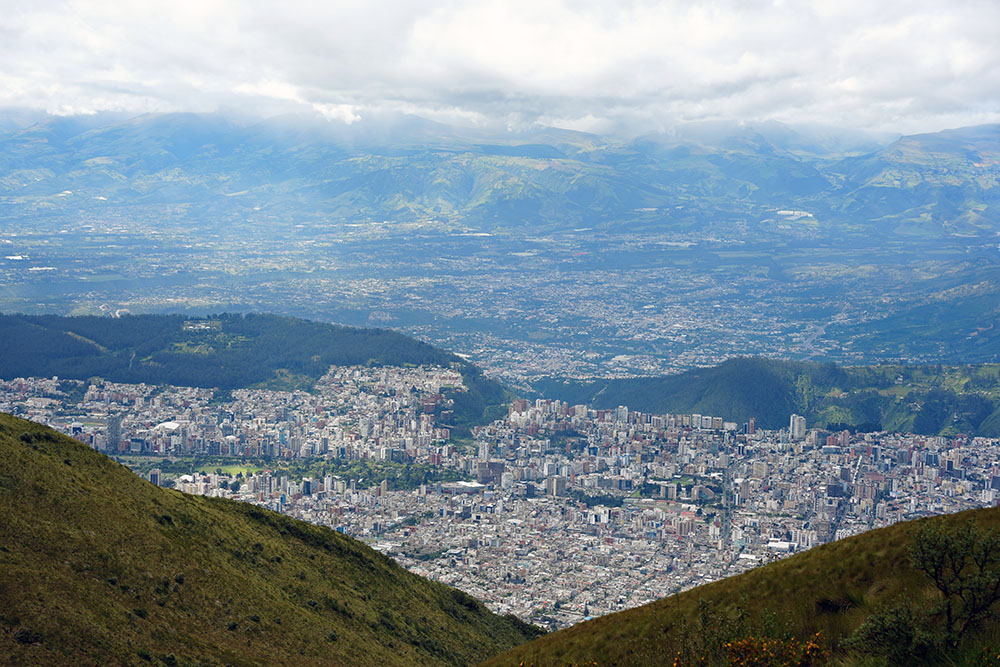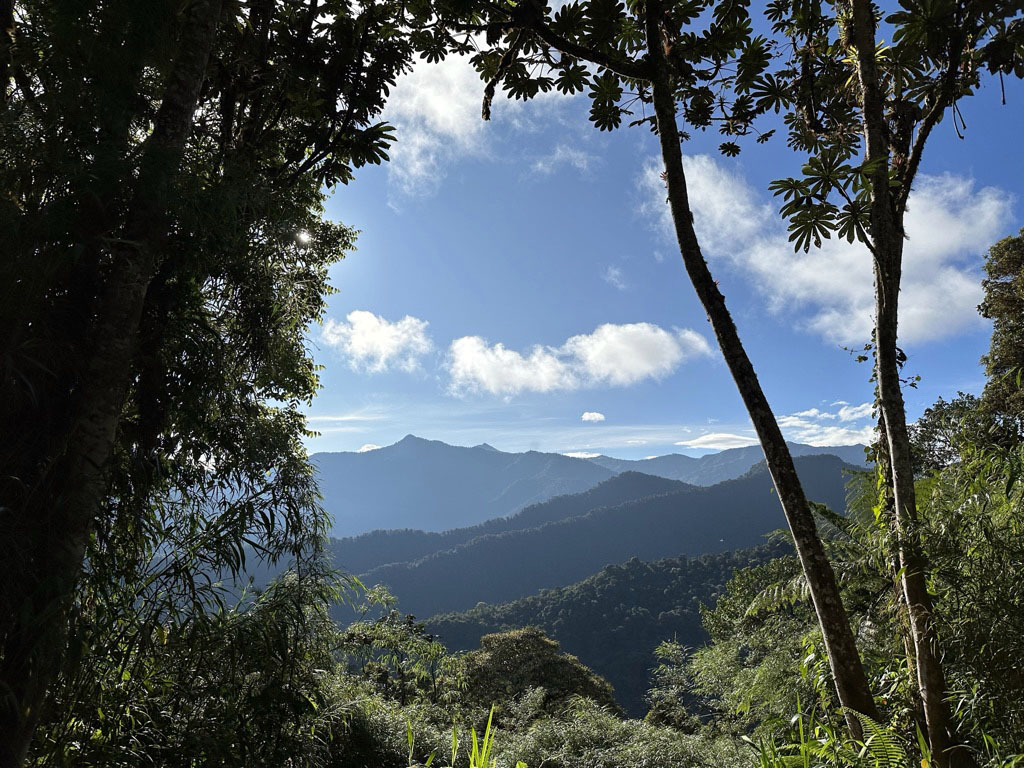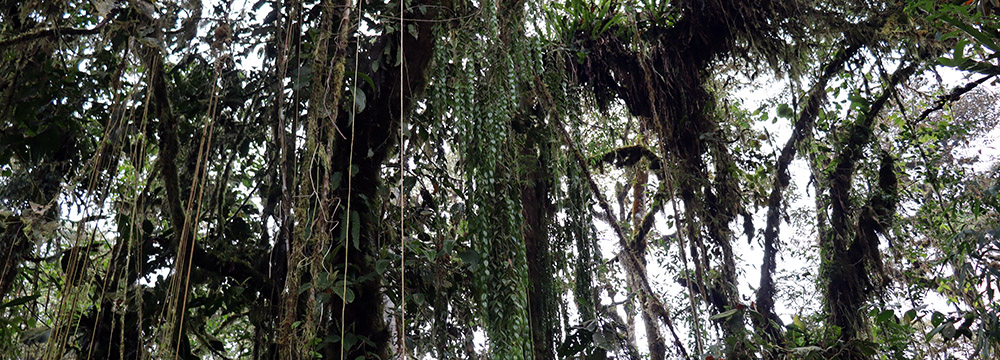Field Notes: Wheaton Filmmaker in Ecuador
Each summer, Wheaton College offers several Filmmaker in Residence Fellowships that fund students to travel with faculty-led international courses and produce films about the experiences and issues being studied. This past June, Reka Moscarelli ’25 was awarded a fellowship to travel to Ecuador with Professors Jesse Knowlton and Gabriela Torres for their course: Ecuador, From the Andes to the Amazon: Human Interactions with the Natural World .
Reka recently spoke with Patrick Johnson, Associate Professor of Filmmaking, about the experience.
Please tell me a bit about the film/project you filmed in Ecuador?
While I have yet to decide the exact premise of my documentary, I was really focusing on collecting footage related to healing practices in Ecuador and the environmental (and some social) issues that exist in the country. I also tried to get a variety of footage showing the many different ecosystems there, since there are so many types of biomes all located in one relatively small country. The biodiversity, the variety of environments, and the range of different stories from everyday people were some of my main inspirations while filming.

What was an important lesson that you learned from the experience? What were some of the challenges of filmmaking in Ecuador?
I learned a lot about organization and being prepared for the unexpected, and how challenging it is to be collecting footage while also interacting in real time with the people and places you are filming. I was often hiking or having a conversation while holding a camera and kind of hoping for the best, trying to balance experience and interaction with getting content. This is probably why most documentaries operate with crews! There were also times when people would decline my request to be filmed, and I had to be okay with the fact that I wouldn’t get that footage for the documentary. Overall I think I got a lot better at knowing what moments to film and what moments I should just be in the experience, whether I was focused on hiking, a certain conversation, or being aware of my surroundings for safety reasons. Thinking back, there are several times when I wished I had brought out my camera or focused a little more on the quality of the footage I was getting, but it was often difficult to balance both at once. This is something I hope to practice and improve in the future.

What was a standout moment that you were able to capture?
Some of my favorite footage is from the Amazon, when I had the chance to film all sorts of plants and insects I had never seen before. I particularly liked filming leaf cutter ants while they went about their journeys gathering leaves and following their complex networks of nests. Another moment I was particularly happy to get a recording of was a conversation between myself and a woman working at a market stall selling a variety of traditional medicines. The priority in that moment was the interaction, with us conversing in Spanish and her handing my friends and different plants and tinctures and teaching us about their uses, so the footage itself is often out of focus and not technically good. If I had had the chance to do a full set up, with a tripod, mic, and more than ten minutes, I would have loved that, but I am just grateful that the interaction was captured, in perhaps an even more genuine way than I intended.
What is the next step for the project and in your journey as a filmmaker?
I will be conducting several interviews with people I met during the trip, as there was little time for sit down interviews during the whirlwind two weeks. Figuring out how to piece together the footage will be challenging, especially since we went to so many different areas and talked to a variety of different scientists, educators, artists, and activists. Each person and place added a new dimension to the experience, and I want to do justice to that in the final documentary while keeping it concise and watchable.
I want to continue refining my filmmaking skills, as I think they are still very rudimentary. I have a lot to practice in terms of camera work, though I would like to work with a small group at some point and possibly direct a short film. I grew up watching a lot of typically structured documentaries, with standard interview setups, archival footage, and attractive, tasteful footage. But often some of my favorite memories of documentaries are from the more playful and creative films, which I often saw at the Providence Children’s Film Festival. I want to shift my focus to making more films like these, which are, in my opinion, just as engaging as the standard expository documentary.

What is something that you would love people to know about the experience?
I want people to know that there is so much value from going out of your comfort zone, from going anywhere, whether its thousands of miles away or a few block from your house, that is different from your day to day life. Practicing the language was, for me, a significant part of this, as I had taken classes in Spanish for years but hadn’t had many opportunities to fully use it yet. While the US population speaks many languages, it is often not a priority within our education system. But finding any way you can to learn and practice a language is incredibly valuable, as it allows you to learn and communicate with so many more people in the world. I encourage anyone who is traveling to an area where another language is spoken to try and practice the basics of it, because it will help you to unlock a new level of cultural understanding.